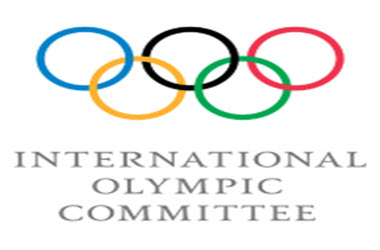Russian Ban by IOC Receives Full Support by IOC Membership
 The IOC President, Thomas Bach, has reported that the IOC membership has unanimously voted to uphold the ban on Russia from competing in the Olympics due to on-going doping allegations.
The IOC President, Thomas Bach, has reported that the IOC membership has unanimously voted to uphold the ban on Russia from competing in the Olympics due to on-going doping allegations.
Bach faced a large volume of questions relating to the Russian doping scandal that plagued the Sochi Olympics. While the IOC refused to allow athletes who were found to have breached the doping laws, they did allow athletes from Russia who were not part of the allegations to compete under a neutral banner.
The IOC doesn’t want the Summer Olympics in Tokyo to be impacted by the doping scandal, but just hours before the closing ceremonies were to begin, the IOC decided that the Russian athletes would not be allowed to march under the “Olympic Athletes from Russia” banner. The IOC felt that would have been a sign that Russia was allowed to return to competition.
The 2018 Winter Games saw two Russian athletes testing positive for doping, and this will all but guarantee extensive testing in the future for athletes participating from Russia.
Said Bach,
“These two doping cases have in fact played the major role when coming to the decision of not lifting the suspension, this was the key factor.”
The IOC also has chosen that the Russian Olympic Committee shall have its suspension lifted if no additional tests come back positive against is athletes who participated in the Winter Games. While a timeframe on how long it will be before testing is complete, Bach was unable to say for certain, but it is expected within the next few days.
All IOC testing samples are stored for ten years so that new testing methods can detect if cheating took place. However, in the case of Russia, they will not be required to wait out the ten years but a line has been drawn and nations clearly have been sent a message.
The IOC banned the Russian Olympic Committee on the 5th of December due to widespread doping during the Sochi Games in 2014. Nicole Hoevertsz, an IOC member, responsible for the Russia implementation group stated that Russia has already met a large number of the conditions for reinstatement.
Said Hoevertsz,
“Despite a good collaboration from the OAR delegation to respond to these (doping) cases in a prompt and transparent way, the implementation group was convinced that these cases caused significant concern.”
The recommendation to uphold the current ban was approved unanimously just before the final competition and subsequent closing ceremonies. The board consist of 100 members, of which 52 were present for the vote.
While Bach said there is no proof of systematic doping, he chose to defend an athletes right to be judged as an individual and was not forthright on any punishment be collectively levied against Russia, and this has made his stance seem soft by those who wanted to see an outright ban against the Russians.
Commenting on the future, Hoevertsz said,
“We have to draw a line and look toward the future. It is never going to be business as usual any more in the world of sport and in Russia. Many changes have been made and many changes still have to be made.”
Back made it clear that the treatment Russia received over doping is not a blueprint towards the future as it is the hope of the IOC it is one that will not be repeated.
Back commented on the struggles the IOC faced with cheating and doping and the challenges they face in controlling it stating,
“We will always have positive tests with regard to every nation. This fight against doping will never be over. As long as you have human beings in competition with each other you will have some who try to cheat. In society we have laws against theft and robbery for thousands years, but there is still theft or robbery.”
